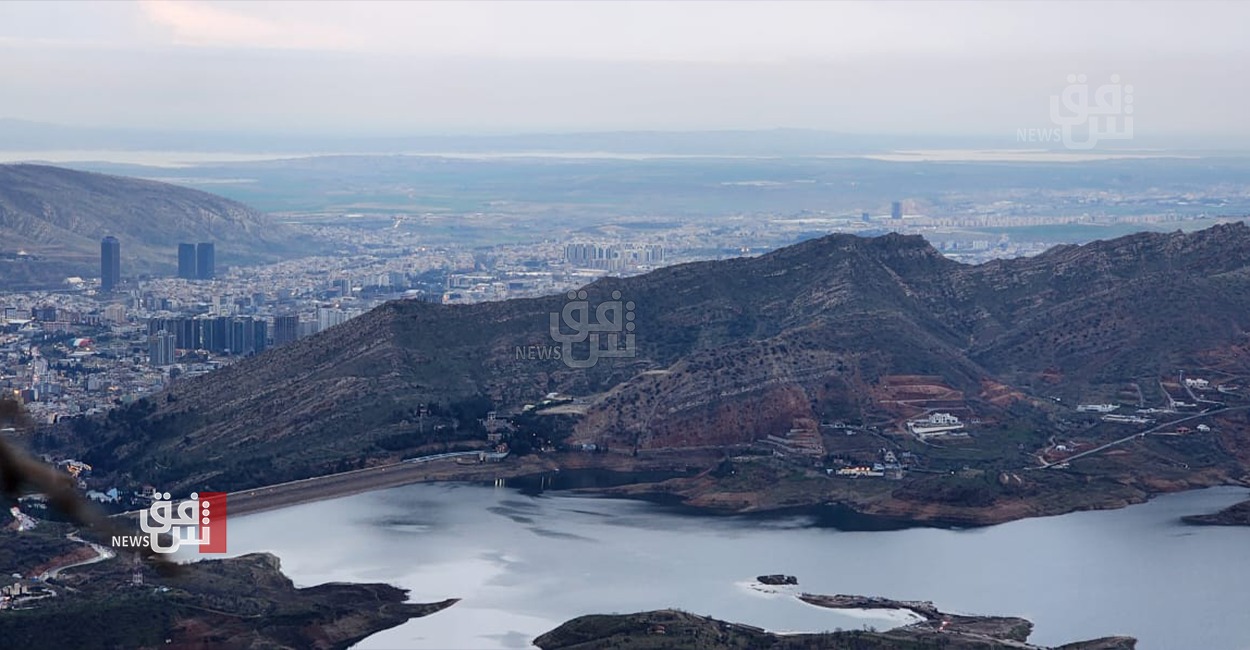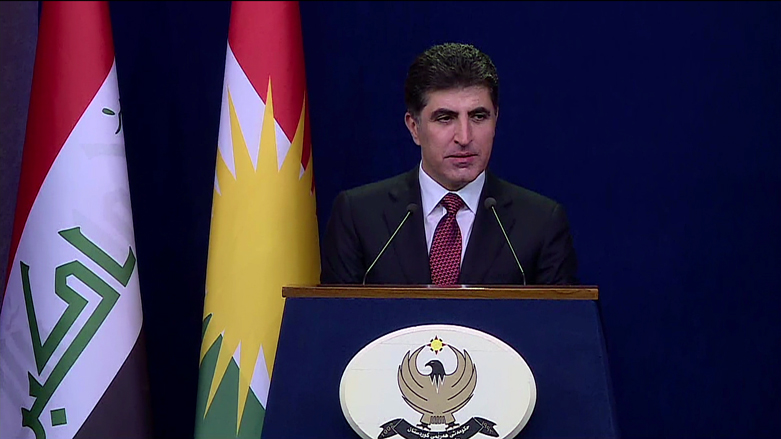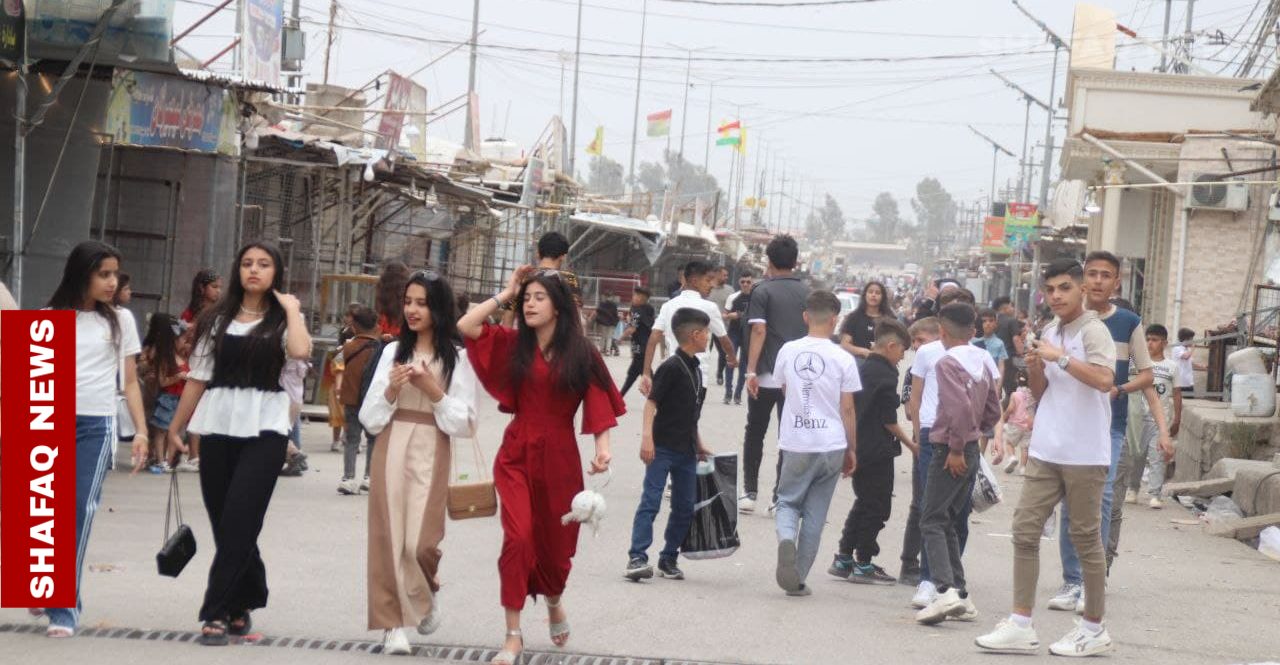Kurdistan’s forests under threat: War, climate, and efforts to rebuild

Shafaq News/ TheKurdistan Region (KRI), renowned for its mountains and breathtaking naturallandscapes, has lost about 50% of its vegetation cover over the past fivedecades. Hosting more than 90% of Iraq's forests, experts view this loss as asignificant tragedy.
Iraq's total forestedarea is approximately 825,000 hectares, covering about 1.9% of the country'sland, according to the Food and Agriculture Organization (FAO). The KurdistanRegion accounts for 97% of Iraq’s natural forests, making any environmentaldegradation in the area a nationwide concern. Over the past five decades, theRegion has lost around 50% of its artificial forests and 30% of its naturalforests.
KRI EnvironmentalDamage: The Why and How
The KRI has facedsevere environmental losses in recent years, with fires threatening its uniquebiodiversity and devastating large forested areas. A 2024 report by the Dutchpeace organization PAX highlighted these damages, focusing on the Region'sforests and farmlands. The losses stem from climate change, risingtemperatures, prolonged droughts, and military activities, particularly theongoing conflict between Turkish forces and the Kurdistan Workers' Party (PKK).
Since 2020, Turkiyehas expanded its presence in Iraqi Kurdistan, establishing over 40 militaryoutposts and bases. To secure these positions, forests have been cleared, androads have been constructed through once-pristine green areas. In 2024 alone,Turkish airstrikes reportedly hit 381 locations across Al-Amadiya, MountQandil, Duhok, Erbil, Al-Sulaymaniyah, and Sinjar, with fires linked tomilitary activity scorching more than 120,000 hectares of land. Since 2010,nearly 290,000 hectares of forest have been lost to fires, with 20% ofKurdistan’s forests destroyed between 2000 and 2016.
Climate change hasintensified the crisis, as rising temperatures, declining rainfall, andworsening water scarcity leave forests increasingly vulnerable to droughts andwildfires. The combination of human activity and environmental stress hasplaced Kurdistan’s forests under immense strain, making conservation effortsmore urgent than ever.
Vegetation loss isalso attributed to illegal logging, which saw more than 63,000 trees felledunlawfully in the past year alone, severely impacting biodiversity anddisrupting the ecological balance.
Efforts to CombatDeforestation
The rapid loss ofKurdistan’s forests has prompted Regional authorities to implementreforestation initiatives. Various tree species, including pine, eucalyptus,olive, and pomegranate, are being cultivated in nurseries protected from theharsh sun. The Sarchanar Tree Nursery, the oldest in Iraq, has developed around40 types of saplings, including pine, cypress, and oak—trees that symbolize theRegion’s forests. Additionally, the nursery grows olive, eucalyptus, juniper,fig, and apricot trees, which are either replanted in forests or sold tofarmers.
The Kurdistan RegionalGovernment (KRG) has taken several measures to reverse deforestation, launchingafforestation projects and enforcing stricter regulations against illegallogging. A key initiative includes the Green Kurdistan campaign, aiming toplant 10 million trees by 2030. Moreover, KRG has partnered with internationalenvironmental organizations to develop sustainable forestry programs, focusingon wildfire prevention, afforestation, and conservation.
With support from theWorld Food Programme (WFP), new measures have been introduced to enhance treegrowth. Mesh canopies now shield saplings from excessive heat, reducingevaporation and promoting faster development. Agricultural houses have beenequipped with hanging sprinkler systems for efficient irrigation, while asolar-powered well provides a sustainable water source. These advancements havesignificantly increased production, with the nursery’s annual output in 2024rising from 250,000 trees to 1.5 million. Over the next five years, the WFPplans to support local authorities and stakeholders in planting 38 milliontrees across more than 61,000 hectares in the Region, while also working toprotect an additional 65,000 hectares of existing forest.
The KRG has alsointroduced strict laws against illegal logging and imposed penalties for thoseresponsible for deforestation. Community-based reforestation efforts have beenencouraged, with local farmers and landowners given incentives to cultivatetrees on their lands. Additionally, efforts to rehabilitate burned or damagedforests include reintroducing native tree species to maintain biodiversity.
In a bold move toaddress environmental challenges and promote sustainability, the renownedRwanga Organization, in collaboration with the Iraqi and Kurdish Ministries ofAgriculture, has launched an ambitious afforestation project. Led by RwangaChairman Idris Nechirvan Barzani, the initiative focuses on planting 20,000olive trees in the arid Kasnazane region, southwest of Erbil. This project ispart of a broader effort to combat desertification and restore Kurdistan’sonce-thriving green landscape.
While these effortshave made a noticeable impact, challenges remain. Despite afforestationinitiatives, the rate of deforestation still exceeds the pace of reforestation.Experts emphasize the need for long-term policies that integrate sustainableland management, water conservation, and community participation to ensureKurdistan’s forests are not only restored but preserved for future generations.




